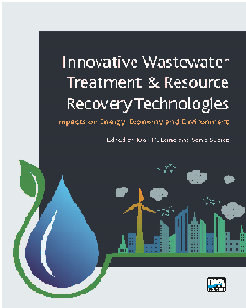About the Authors
Name and title(s): Professor Juan M. Lema
Areas of expertise: Removal of organic micropollutants from wastewater; Anaerobic (co) digestion; Development of bioreactors for wastewater treatment; Biorefinery
Name and title(s): Dr. Sonia Suárez
Areas of expertise: Removal of organic mircopollutants, especially those from pharmaceutical and cosmetic origin, from municipal and hospital wastewater by innovative physico-chemical and biological processes
Questions
This year is the fifth IWA Water and Development Congress & Exhibition (WDCE 2017). Why is this event important?
While other IWA Congresses are focussed on very specific topics related to the water sector, the Water and Development Congress & Exhibition offers a more holistic approach, facing water as a global resource. While in the former editions it was an opportunity for attracting awareness on water security and scarcity that could hinder the further development of low income countries, nowadays it shows the opportunity for emerging countries to foster their water sector with own developments. It offers and ideal forum for discussion among different stakeholders dealing with water management, supply, sanitation and innovation.
This year, the theme of the IWA WDCE is “sustainable solutions for emerging economies”. What, in your field, are some of the most important aspects of this theme?
In the XXI Century the access to safe and sufficient water should be guaranteed worldwide. So, water availability by means of sustainable processes is an issue that has to be faced by emerging countries at economic, environmental, legal and social level. Many technological options that have been developed and applied in the more developed countries coping with the current sustainability standards could be used as reference models for such processes. Any action that promotes the transfer and exchange of such knowledge is relevant, both at technological level and for capacity building of water professionals.
What, for you, is the most significant or exciting research area in water and development today?
Moving towards a circular approach by recovering and reusing the resources involved in wastewater treatment. In order to reuse the water it is essential to develop more efficient treatment and/or postreament strategies to ensure the chemical and biological quality of the water. This implies that emerging contaminants, such as micropollutants or viruses, must be included as target substances in the quality monitoring. Substances such as nitrogen, phosphorus, organic compounds or the energy contained in the wastewater should be approached as valuable resources to be recovered instead of destroyed during the treatment.
